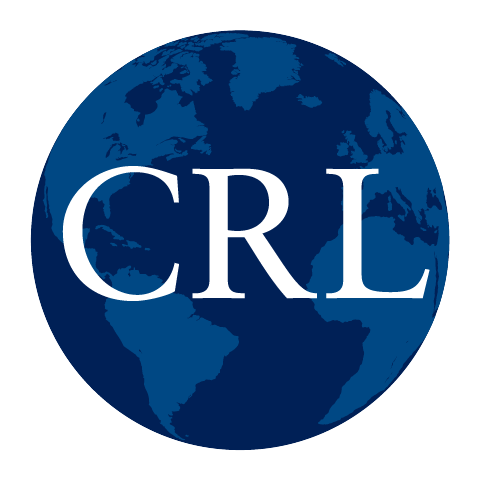Pakistan : a country study
Uloženo v:
| OCLC: | 623159962 |
|---|---|
| Korporativní autor: | |
| Další autoři: | |
| Jazyk: | English |
| Vydáno: |
Washington, D.C. :
Federal Research Division, Library of Congress,
1995.
|
| Vydání: | 6th ed. |
| Edice: | Area handbook series.
DA pam ; 550-48. |
| Témata: | |
| On-line přístup: | LLMC Digital |
| Příbuzné jednotky: | Print version:
Pakistan. |
| Médium: | Vládní dokument Monograph On-line přístup |
Obsah:
- Early civilizations
- Islam in India
- The Mughal period
- Company rule
- The British Raj. The forward policy ; The seeds of Muslim nationalism ; Beginnings of self-government ; The two nations theory ; Toward partition
- Independent Pakistan. Problems at independence ; Constitutional beginnings ; Early foreign policy ; Collapse of the parliamentary system
- The Ayub Khan era. Basic democracies ; The 1962 constitution ; Ayub Khan's foreign policy and the 1965 war with India
- Yahya Khan and Bangladesh
- Zulfiqar Ali Bhutto and a new constitutional system
- Zia ul-Haq and military domination, 1977-88
- Pakistan and the world during the Zia regime
- Physical environment. Boundaries ; Topography and drainage ; Climate ; Pollution and environmental issues ; National conservation goals
- Population. Population distribution and density ; Population planning policies and problems ; Migration and growth of major cities ; Impact of migration to the Persian Gulf countries ; Repercussions of the war in Afghanistan
- Social structure. Traditional kinship patterns ; Linguistic and ethnic groups ; Men, women, and the division of space ; The status of women and the women's movement
- Religious life. Basic tenets of Islam ; Islam in Pakistani society ; Politicized Islam ; Non-Muslim minorities
- Education. Structure of the system ; Female education ; Reform efforts
- Health and welfare. Maternal and child health ; Health care policies and developments ; Special problems: smoking, drugs, and AIDS ; Zakat as a welfare system
- Prospects for social cohesion
- Structure of the economy
- The role of government. Policy developments since independence ; Development planning
- Finance. Budget ; Fiscal administration ; Monetary process
- Foreign economic relations. Foreign aid ; Foreign trade ; External debt
- Labor
- Agriculture. Land use ; Irrigation ; Drainage ; Farm ownership and land reform ; Cropping patterns and production ; Livestock ; Forestry ; Fishing
- Industry. Manufacturing ; Construction ; Energy ; Mining and quarrying
- Services. Transportation ; Telecommunications ; Tourism
- Constitutional and political inheritance. Independence ; Role of Islam ; Regional and ethnic factors ; The civil service ; The military
- Early political development. Early constitutional building, 1947-58 ; Ayub Khan, 1958-69 ; Yahya Khan, 1969-71 ; Zulfiqar Ali Bhutto, 1971-77 ; Zia ul-Haq, 1977-88
- Constitutional and government structure. President ; Parliament and federal government ; Provincial governments ; Judiciary
- Political dynamics. Muslim League ; Islami Jamhoori Ittehad ; Jamaat-i-Islami ; Pakistan People's Party ; Muhajir Qaumi Mahaz ; Awami National Party ; Jamiat-ul-Ulami-i-Islam ; Tekrik-i-Istiqlal
- Political developments since Zia. The first government of Benazir Bhutto ; The caretaker government of Ghulam Mustafa Jatoi ; The government of Nawaz Sharif ; President Ghulam Ishaq Khan as power broker ; The "silent revolution": a year of political struggle ; The caretaker government of Moeen Qureshi ; Benazir Bhutto returns
- The media
- Foreign policy. India ; Other South Asian countries ; China ; Middle East ; The United States and the West ; International organizations
- The armed services: a historical perspective. The colonial background ; The formation of Pakistan
- Pakistan's evolving security dilemma. Survival in a harsh environment ; The United States alliance ; The army assumes control ; Collapse of Pakistan's security system ; The Indo-Pakistani War of 1965 ; The military reasserts itself ; Pakistani becomes a frontline state ; The armed forces in a new world order
- The armed services. Constitutional basis and missions ; Defense strategy ; Ministry of defence ; Army and paramilitary forces ; Navy ; Air force ; Personnel and training ; Uniforms, ranks, and insignia ; Military production ; Budget ; Military justice ; Foreign security relationships ; The role of Islam
- Internal security. Role and structure of the security forces ; Character of the security forces ; Crime ; Narcotics ; Courts and criminal procedure ; Prisons ; Islamic provisions ; Emergency provisions ; Subversion and civil unrest.

